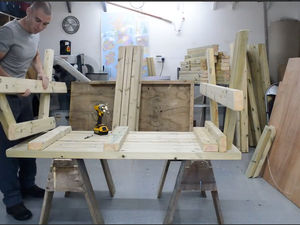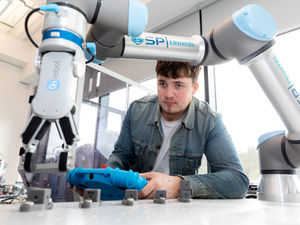Planning critical as production restarts
Long term planning will be critical as UK manufacturing starts to move out of lockdown, according to Johnathan Dudley, head of manufacturing at national audit, tax, advisory and risk firm Crowe.
Mr Dudley, based at Crowe's Midlands office in Oldbury, was speaking after the third in a series of national video conferences hosted by the firm.
He said discussion by participants ranged over four specific topics: protection, diversification, corporate debt and envisaging what the future would look like.
“Participants were firm that we must ensure that our manufacturing companies are part of the supply chain with a new focus on ‘Made in Britain’. If we see international trade sanctions in the future, it is vital that companies focus on supply chain verification for their protection," he explained.
It was also suggested that any future scrappage scheme in the automotive industry only favours UK car manufacturers who have a UK supply chain.
Mr Dudley said: “The feeling is that there is little benefit to UK manufacturing if the majority of qualifying companies source parts abroad. But first, Manufacturers need to deal with supply chain shortages caused by Covid-19 which are impeding or stopping production lines in many sectors globally.”
Looking ahead, callers felt that many companies will succeed or fail by their ability to diversify in a flexible and agile way.
Mr Dudley added: “We are hearing that aerospace is not likely to recover fully for 10 years and there will be opportunities in areas such as the need for segregation in public and commercial transport and products such as bicycles.
“There will also be other diversification opportunities in the medium to longer term in certain health and safety products such as ventilators and PPE and some of this will have a long tail.”
Loss of talent is another area that concerned participants in the conference call.
Mr Dudley said: “It is important that the government makes sure there is sufficient funding into companies to continue investment in Research & Development so that those talented employees currently engaged in UK industry are not headhunted away from the UK and their skills are lost to the country.”
He is predicting an upsurge in merger and acquisition activity as the manufacturers with the deeper pockets target some of the “easy pickings” that will exist post-lockdown.
“It is an interesting conundrum that the venture capital and specialised lending sector has cash to invest as the Coronavirus Business Interruption Loan Scheme has cut demand for their products and they will undoubtedly see the opportunities for investment and secondary lending in the future.”
All participants to the conversation expressed concern about debt servicing issues that will kick in next year when Time to Pay runs out and interest on loans and deferred payments all have to be met.
Callers expressed the belief that a cash crunch across the manufacturing sector is still six to eight weeks away but this will also mean added pressure on financing while trying to fund a return to full capacity.
Mr Dudley added: “We also have to consider what happens if there is a spike in infections and another lockdown is required, either nationally or locally.
“The next phase will be critical – long term planning will be critical.”




